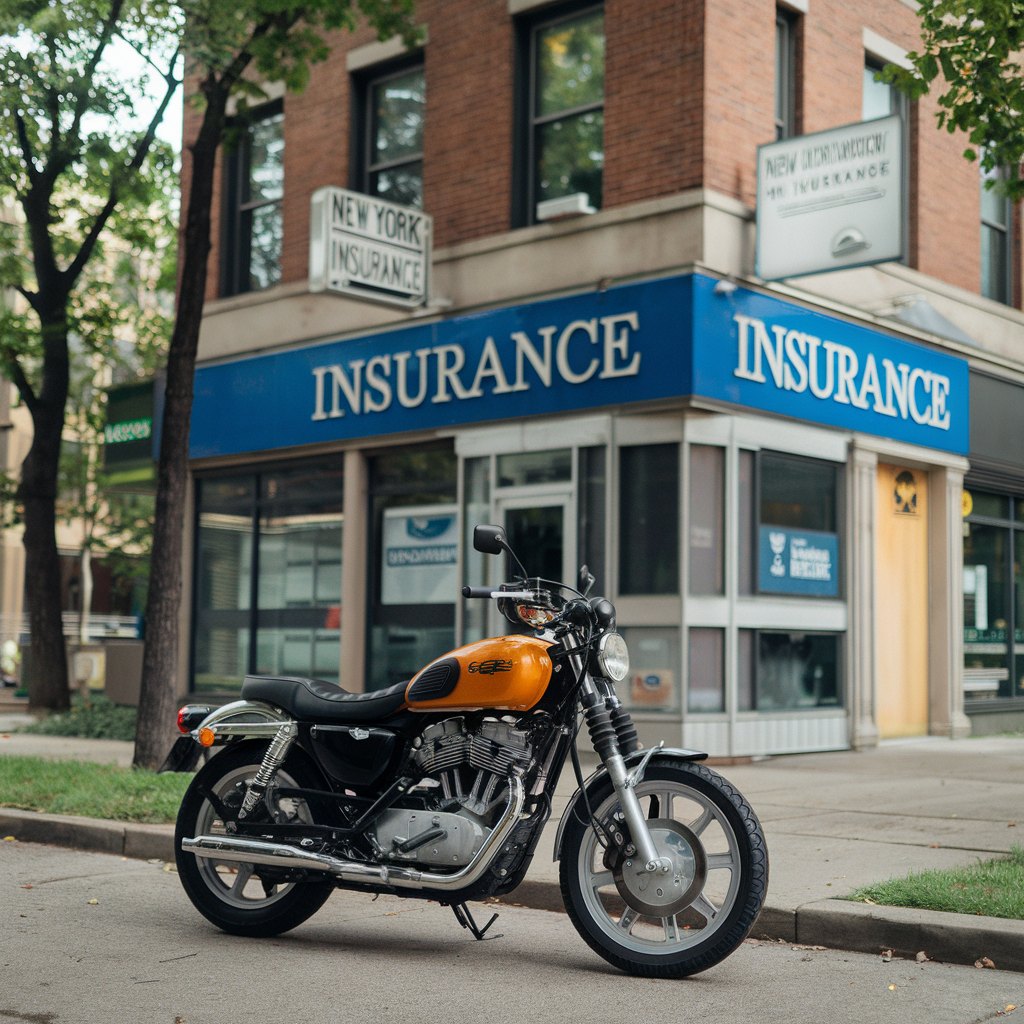
What is Motorcycle Insurance?
Motorcycle insurance is an essential form of financial protection that safeguards your investment in your bike, scooter, moped, ATV, or UTV. This insurance provides coverage in several critical areas, including damage or theft of your vehicle, as well as liability protection if you are responsible for injuring someone or damaging their property while riding. By obtaining motorcycle insurance, you ensure that unexpected incidents—such as accidents, theft, or natural disasters—do not lead to significant financial burdens.
The policy typically includes various types of coverage:
- Liability Coverage: This is the minimum requirement in most states and protects you if you cause injury or property damage to others. It includes bodily injury liability and property damage liability.
- Comprehensive Coverage: This coverage protects your motorcycle against non-collision-related incidents, such as theft, fire, vandalism, and natural disasters.
- Collision Coverage: This covers damages to your motorcycle resulting from a collision, regardless of who is at fault.
- Medical Payments: This optional coverage pays for medical expenses for you and your passengers if you are injured in an accident, regardless of fault.
- Uninsured/Underinsured Motorist Coverage: This provides protection if you are involved in an accident with a driver who does not have insurance or whose insurance is insufficient to cover the damages.
By understanding these different components of motorcycle insurance, you can select a policy that best meets your needs and offers comprehensive protection.
Is Motorcycle Insurance Required?
Motorcycle insurance is not just a smart choice; in nearly every state, it is a legal requirement. Riding without insurance can lead to severe penalties, including hefty fines, license suspension, and even imprisonment in extreme cases. States typically mandate at least a minimum amount of liability coverage, ensuring that riders can financially compensate others for damages or injuries caused by their actions on the road.
While comprehensive and collision coverage options are generally considered optional, they may be required if you are financing your motorcycle. Lenders want to protect their investment, so they often stipulate that you carry these additional coverages.
It’s important to note that even in states where insurance is not mandated, having a motorcycle insurance policy is critical. It not only protects your motorcycle against damages but also shields your personal assets in case you are found liable in an accident.
For specific information on motorcycle insurance requirements by state, you can refer to resources that outline these regulations, such as the Insurance Information Institute or the National Association of Insurance Commissioners.
How Does Motorcycle Insurance Work?
Purchasing motorcycle insurance involves a straightforward process, whether you do it through an online platform like mywiseinsurance.com or via an insurance agent. When applying for insurance, you will be asked several basic questions about yourself, your motorcycle, and your desired coverages. The information you provide will significantly influence the cost of your insurance.
If you experience theft, damage, or an accident, you can file a claim with your insurer. Here’s a step-by-step breakdown of how the claims process typically works:
- Report the Incident: For theft, contact the police immediately and file a report. For accidents, make sure to document all details, including the other party’s information, witnesses, and the accident scene.
- File a Claim: Contact your insurance provider to begin the claims process. You’ll need your policy number, details of the incident, and any relevant documentation, such as the police report.
- Claim Assessment: The insurer will evaluate your claim, determining whether it falls within the coverage limits of your policy. They may require you to provide further information or evidence regarding the incident.
- Payout: If your claim is approved, the insurance company will pay for losses or injuries up to your coverage limits, minus your deductible. The payout will be based on the type of coverage you have chosen.
- Repair Process: If your motorcycle is repairable, you will typically be directed to authorized repair shops to ensure quality work.
Being familiar with the claims process can help you navigate it more effectively should the need arise. It’s also advisable to maintain thorough records of your motorcycle and any modifications you make, as these can affect your coverage and claims.
How is the Cost of Motorcycle Insurance Determined?
The cost of motorcycle insurance can vary widely based on several factors, as insurers evaluate risk to set premiums. Here’s an in-depth look at the factors that commonly influence the cost of your motorcycle insurance:
- Riding History: Your previous riding experience, including any accidents or claims, plays a significant role in determining your insurance premium. A clean record without accidents or claims generally results in lower rates, while a history of claims or violations can increase your premium.
- Type of Bike: The make, model, and age of your motorcycle can significantly affect your insurance costs. High-performance bikes, luxury models, or those associated with higher theft rates often come with higher premiums. Conversely, standard or older models may be less expensive to insure.
- Age: Younger riders often pay higher premiums due to a lack of riding experience. Insurance companies perceive younger riders as higher risk, especially those under 25.
- Location: Where you live can dramatically impact your insurance rates. Urban areas with higher crime rates and more traffic tend to have higher premiums compared to rural areas. Additionally, certain states have varying insurance laws and average costs that can affect your rates. You can find more information about how location affects rates at Zebra.
- Coverage Selection: The type and amount of coverage you choose will directly impact your overall insurance cost. Opting for comprehensive or collision coverage will increase your premium compared to basic liability coverage.
- Safety Features: Motorcycles equipped with advanced safety features may qualify for discounts, as they can reduce the risk of accidents.
- Bundling Policies: Some insurers offer discounts if you bundle your motorcycle insurance with other types of insurance, such as auto or homeowners insurance.
Understanding these factors allows you to make informed decisions when selecting your motorcycle insurance policy. By comparing quotes and coverage options on platforms like mywiseinsurance.com, you can find the best coverage that fits your needs and budget, ensuring that you are well-protected on the road.
Conclusion
Motorcycle insurance is not just a legal requirement; it is a crucial component of responsible motorcycle ownership. By securing the right coverage, you protect not only your investment but also your personal finances. Whether you’re a seasoned rider or a newcomer, understanding how motorcycle insurance works and what factors influence its cost will help you make informed decisions. Always shop around and compare policies to ensure you get the best coverage for your specific needs. For additional resources on motorcycle safety and insurance, visit Motorcycle Safety Foundation and National Highway Traffic Safety Administration.

No responses yet